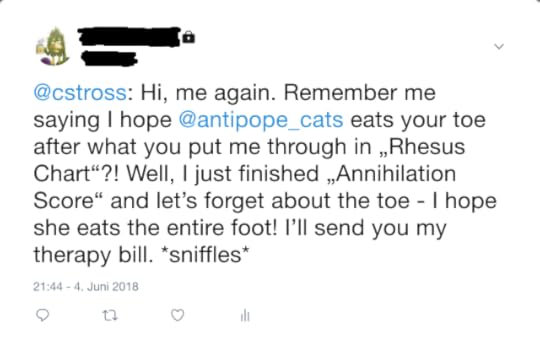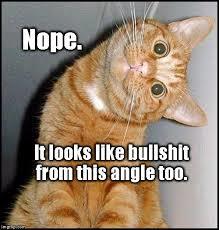What do you think?
Rate this book


352 pages, Hardcover
First published July 1, 2015
"My husband is sometimes a bit slow on the uptake; you'd think that after ten years together he'd have realized that our relationship consisted of him, me, and a bone-white violin...But no: the third party in our menage a trois turns out to be a surprise to him after all these years, and he needs more time to think about it."



"Please allow me to introduce myself…Meet Mo, a.k.a. Dominique, employee of the UK's super-secret black-ops magic organisation (they call it the Laundry), wife of Bob Howard (a.k.a. The Eater of Souls), bearer of a psychotically evil soul-sucking bone violin, and combat epistemologist. When Mo takes a trip to do a little glad-handing with the Deep Ones (aka BLUE HADES), she thinks she's finally going to get a bit of well-deserved R&R. But before she knows it, a tiny mistake has landed her neck-deep in trouble, and even worse, in bureaucratic paperwork. In Mo's world, the end is nigh, and all hell is beginning to break loose. As the barriers between our world and the Elder Ones of the Dungeon Dimensions break down, more and more people are gaining magical abilities. Magic is rationalized in the context of culture, and given the superhero craze, suddenly there are a disturbing number of people running (or flying) around in Lycra suits that may not precisely flatter them. And a series of mistakes leave Mo in charge of a brand-new superhero ops organization tasked with stopping the superhero singularity. To make things worse, there's a new supervillain Mad Scientist on the loose, and he he's leaving behind messages of the "Tremble, Fools, Before It is Too Late!" variety, and worst of all, the messages are printed in Comic Sans.
No. Strike that. Period stop backspace backspace bloody computer no stop that stop listening stop dictating end end oh I give up.
Will you stop doing that?"
"Yes, she's a blood-sucking fiend. But she's also a superbly competent administrator and has an MBA which I think you'll agree makes up for a lot of sins."
"Scientific research is a bottomless money pit. You can approximate Doing Science to standing on the Crack of Doom throwing banknotes down it by the double-handful, in the hope that if you choke the volcano with enough paper it will cough up the One Ring."
"Despair, dismay, disorientation, and delusion: the four horsemen of the bureaucratic apocalypse."